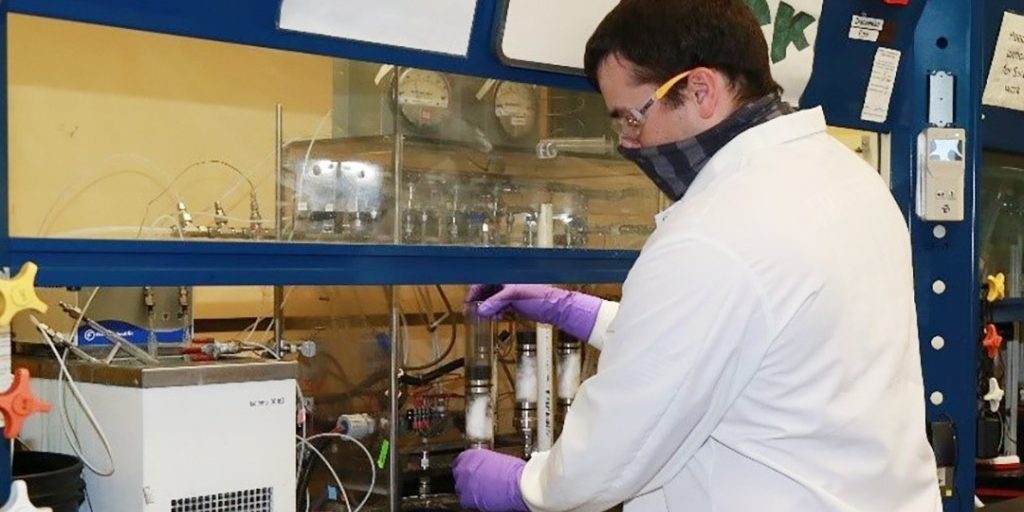Aberdeen Proving Ground, MD — A new qualifying standard for military-grade carbon used in gas masks and protective filters has been developed by a partnership of experts in chemical and biological protection, eliminating U.S. reliance on a single source for this critical material.
Experts at the U.S. Army Combat Capabilities Development Command Chemical Biological Center (DEVCOM CBC) joined forces with the Joint Program Executive Office for Chemical, Biological, Radiological and Nuclear Defense (JPEO-CBRND) and other defense agencies to solve a problem nearly 30 years in the making.
It all began in 1992 when the DoD replaced the chromium-containing carbon it had used for 50 years with a safer, but harder to obtain, carbon for gas masks and protective filters. This safer carbon is known as ASZM-TEDA, which is an acronym for the metals embedded in it as part of the supplier’s manufacturing process. These metals are less toxic and safer for the user than chromium. The formulation was developed by the Center scientists working with the supplier. The problem was that only one supplier had the ability to mine the material and to treat it with this mix of metals.
DoD first assembled a team in 2012 to solve the problem. It launched a project called Activated Carbon Capability Expansion, or ACCE, under the Defense Production Act Title III Office. The project’s mission was to qualify other sources to supply military-grade carbon, the key filtration technology used in gas masks and large-scale protective filters. In 2016, DoD awarded a contract to its existing carbon source to expand its capabilities and another to a second private business to serve as a second source entirely.


